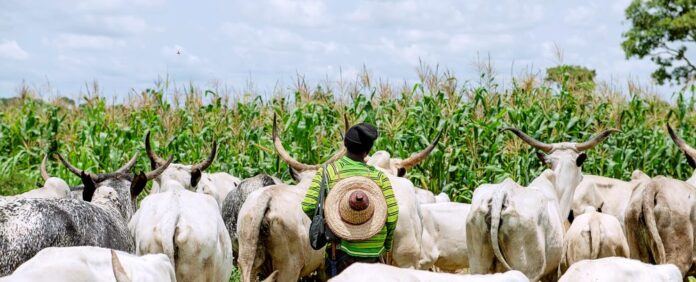The farmers-herders conflicts in Nigeria are being laced with weaving destructive conspiracy narratives and fake news on social media.
This is because when wrong information is shared on social media, it inflames tensions because online users, on their part, accept any information that goes in line with their beliefs without even reading beyond the headlines.
Sometimes, sharers of fake stories are simply not ignorant, but their bias shapes their conclusion.
BattaFiles understands that the crisis between farmers and herders in Nigeria is fundamentally a land-use contest but it is fast sharpening ethnic, regional, and religious polarisation due to weaving destructive conspiracy narratives and fake news on social media.
Recall that the Igangan community in Ibarapa area of Oyo State was propelled to national attention following the death of Fatai Aborede, a large-scale farmer and politician in the area in late Dec. 2020.
According to reports that caught the attention of the public, he was said to have been killed by Fulani herdsmen while returning from his farm.
While there have been cases of killings and kidnappings in the axis before then, Aborede’s case stood out; it led to the unlawful intervention of separatist agitator, Sunday Adeyemo, also known as Sunday Igboho
Igboho went to the community with fully armed thugs to evict Seriki Fulani of Igangan, Salihu Abdulkadir, an action that was condemned by the state and federal governments.
He claimed that the Fulani leader was responsible for the kidnapping and killing of farmers and residents of the community.
BattaFiles understands that Igboho went above the roof because “no citizen has the right to eject others from wherever they wish to reside in the country.”
Igboho later proceeded to neighbouring Ogun State to purportedly evict herders residing there. Months later, there was a reprisal attack. While the police claimed that 11 people died in the attack, residents said over 20 people lost their lives in the battle.
Ugly trend
In June 2021, Femi Fani-Kayode, ex-minister of aviation attached a picture of a man holding a burnt child to his tweet and he described the picture as a casualty from the Igangan crisis in Oyo State.
The controversial post with a misleading picture garnered over 1,800 likes and 1,100 retweets.
But a fact check on the post showed that the picture was not from Nigeria. It was from the Southern Cameroon crisis in February that year.
Interestingly, an independent investigation into the deaths of Aborede months after revealed that his death had nothing to do with farmers-herders crisis as painted by a section of the media.
READ ALSO:
Amazing! 11-year-old boy with autism builds multimillion naira farming empire
Equipping the Harvest: Must-Have Tools for Agricultural Producers
Bayelsa Farmer Cries Out After Losing Poultry to Massive Flood (video)
While Aborede’s death was a focal point to justify the eviction of head of Fulani in the community, investigation by Neusroom, an online newspaper quoted the deceased’s father to have said his son’s death was a political assassination, disguised as herdsmen murder.
The police later said his death was sponsored by his political opponents and a suspect has been remanded.
Also, British Broadcasting Corporation (BBC) in a report published in 2018 said its research showed that fake news in the social media fuels the farmers-herders crisis in Nigeria.
The crisis
BattaFiles is aware that the crisis between farmers and herders, which has claimed thousands of lives, has become one of Nigeria’s gravest security challenges in recent years.
The conflict, which is fundamentally a resource control problem between farmers and herders across the country, is fast sharpening ethnic, regional, and religious polarisation.
A 2017 report by the International Crisis Group said “drought and desertification have degraded pastures, dried up many natural water sources across Nigeria’s far-northern Sahelian belt and forced large numbers of herders to migrate south in search of grassland and water for their herds. Insecurity in many northern states also prompts increasing numbers of herdsmen to migrate south…”.
The danger in posting or reposting information online without verifying is that even if retracted or fact checked, the message has already been sent; opinions have been shaped and violence may occur.
The media must fact check stories and sort fact from fiction. Whenever something is going viral, the media needs to verify and let people know the actual truth. The issue of the farmer-herder crisis may not end for now until the government lays the perfect template but the media can reduce the crisis that comes out of it through responsible reporting and fact checking some of the viral stuff online.





